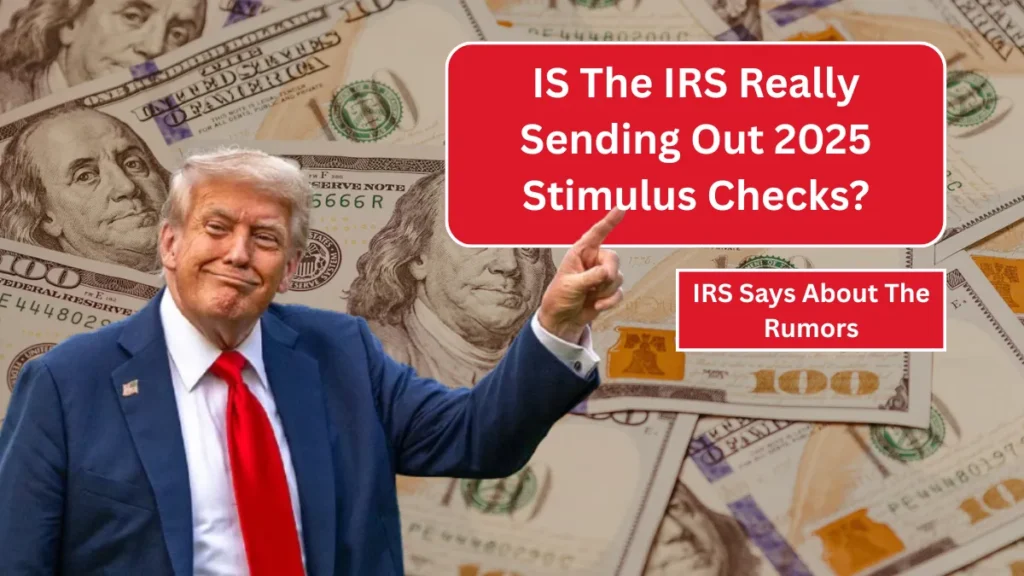A New Wave of Stimulus Checks in 2025?
In recent weeks, social media has been buzzing with claims that the IRS is preparing to send out fresh stimulus checks in 2025. For many Americans still struggling with rising living costs, inflation, or surprise bills, the thought of another financial boost sounds like welcome news.
But is it true or just another viral rumor? Understanding what’s real and what’s not can help people avoid scams and stay prepared for actual IRS announcements. Let’s break down what the agency has officially said and what you should watch out for this year.

What the IRS Has Actually Said About 2025 Stimulus Payments
According to official statements, the IRS has not announced any new stimulus checks for 2025. While the agency continues to focus on tax refunds, child tax credits, and refund backlogs, there has been no mention of another round of government-issued payments.
The last stimulus checks were a direct response to the COVID-19 pandemic and its economic fallout. For a new stimulus to happen, Congress must approve legislation and the President must sign it into law. Since none of that has happened, the IRS has made it very clear—no new stimulus payments are currently planned.
Why These Stimulus Rumors Keep Spreading
So why do these rumors go viral again and again? The answer is simple: economic stress and misinformation. Rising rent, expensive groceries, and higher interest rates make many families hope for relief. Internet posts and clickbait headlines often ignite false claims that “new checks are coming.”
Sadly, scammers also take advantage, sending fake IRS texts or emails promising quick money in exchange for personal information. This is why double-checking with official IRS sources is the safest way to know what’s really happening.
What to Do If You See Stimulus Check Claims
If you come across posts claiming “stimulus checks are back in 2025,” don’t rush to believe them. Instead, verify directly through IRS.gov or trusted news outlets. Never share personal information over email, phone, or suspicious websites pretending to be the IRS.
If a new relief bill ever does get passed, the announcement will come from official government channels—not social media rumors. Staying alert not only protects your finances but also prevents identity theft, which has surged during times of economic uncertainty.
The Bottom Line: Hopeful but Cautious
While no stimulus checks are currently on the table, it doesn’t mean relief programs are gone forever. Lawmakers could debate new economic aid if the financial outlook worsens, but until then, Americans should rely on official IRS announcements only.
Believing rumors can lead to unnecessary disappointment—or worse, costly scams. The best way forward is to stay informed, stay cautious, and focus on legitimate financial resources already available, such as tax credits and assistance programs.